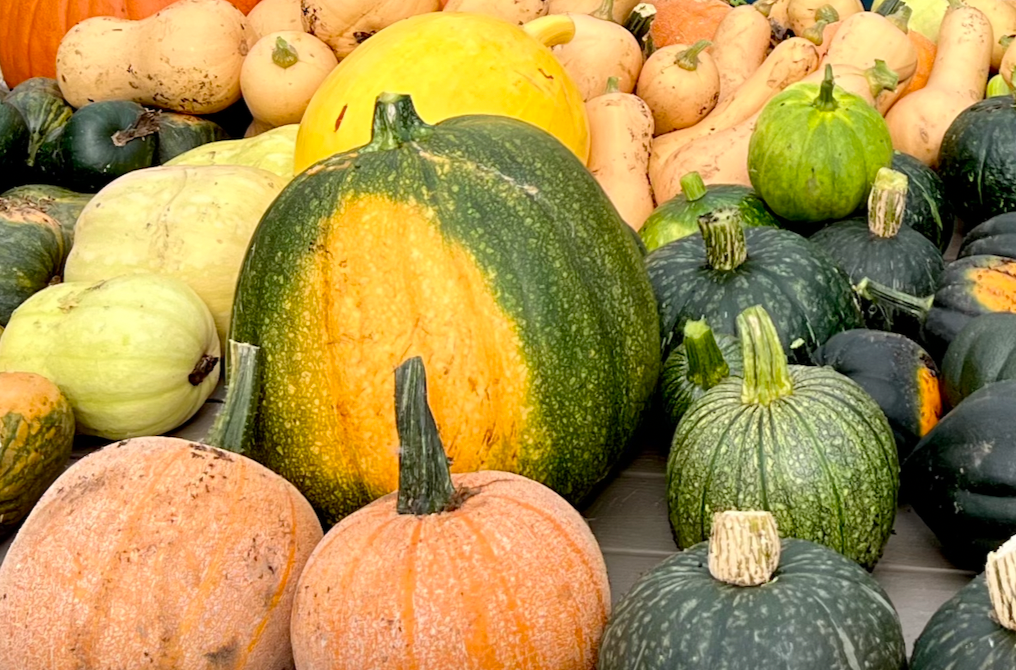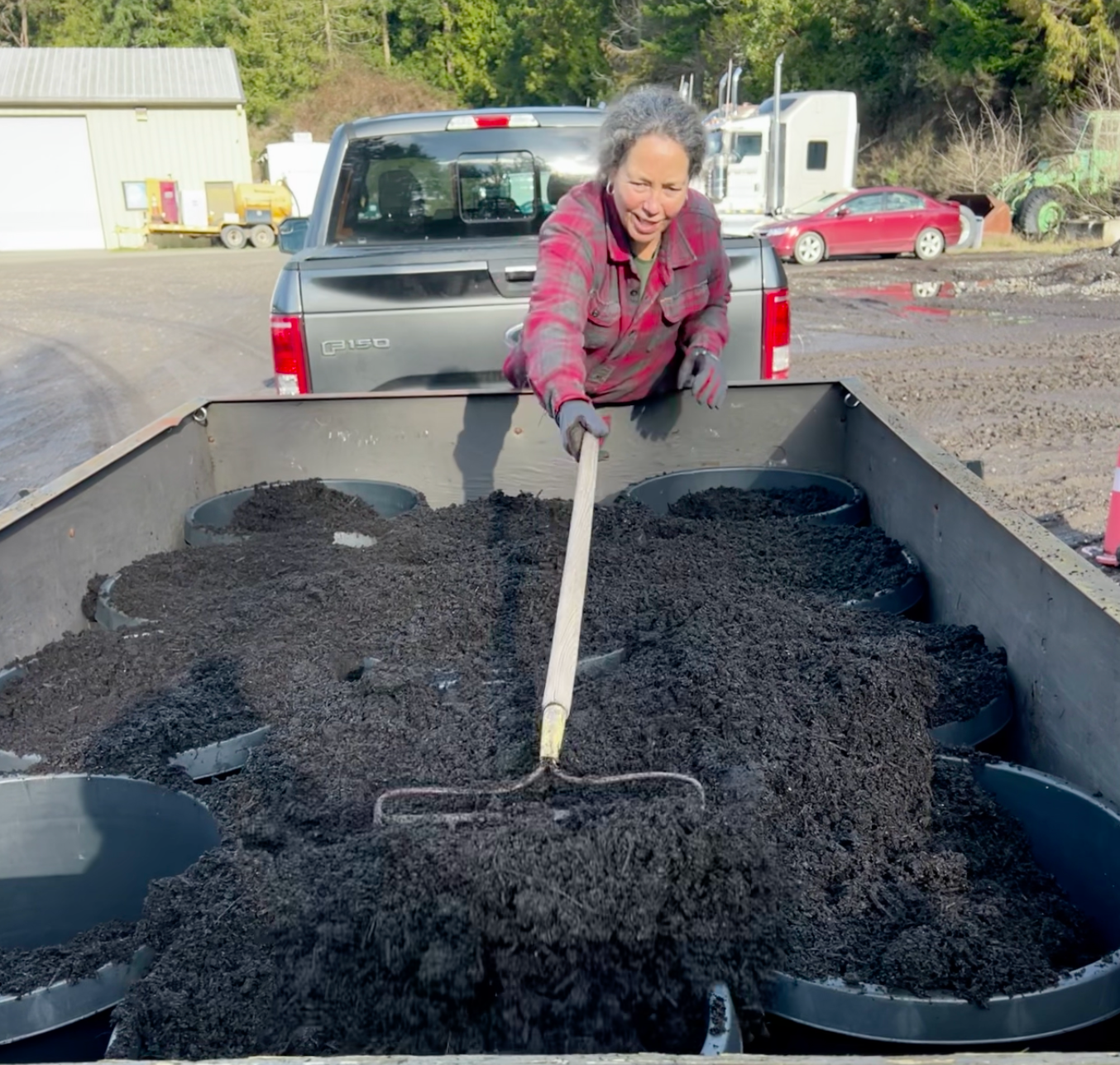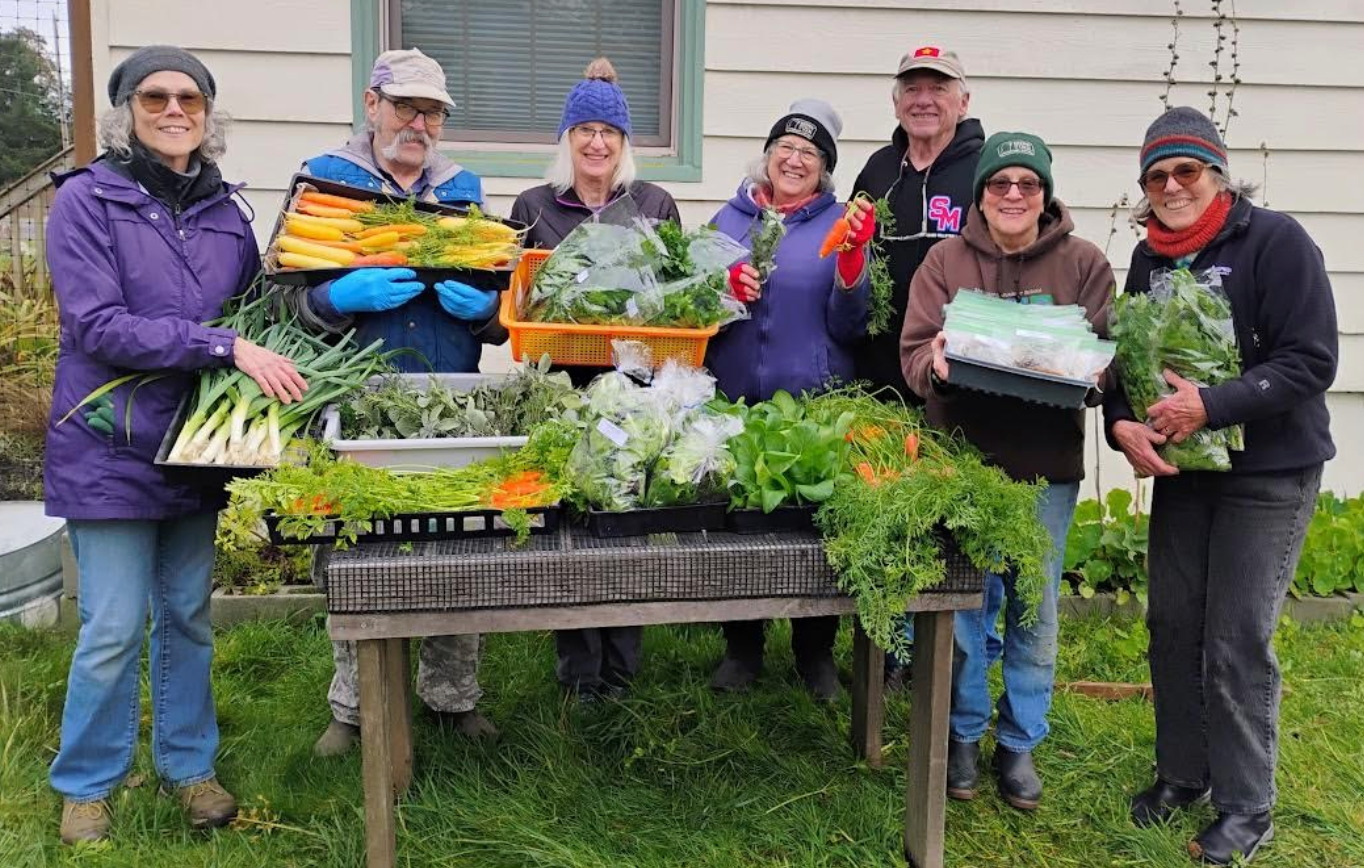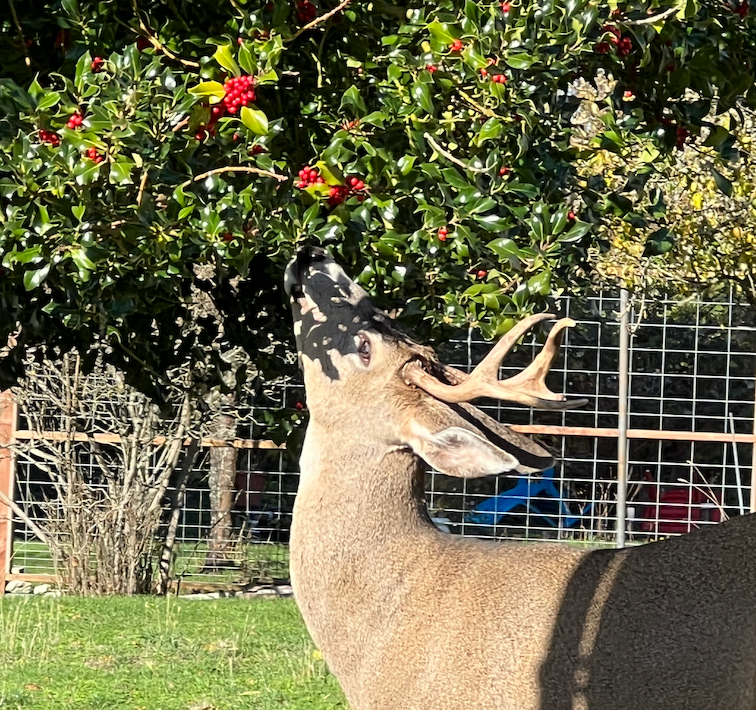January Newsletter 2025

Winter Greens turn to Summer Dreams
Happy New Year!
It’s time to re-oil the tools, plant some spring onions, and clean up the garden that is so last year… Welcome to 2025. Need a new way to provide a positive impact on our community? Help us in the garden or online all skills are appreciated.
Did you know that FBG Volunteers live longer because they aren’t afraid of dirt, making new friends, or tasting the latest recipe someone creates? (Garden gloves over our hearts… we all swear it’s true.) We’ll be holding a “New Volunteer” meeting on January 15th at 5:00 pm. (Zoom) If you’ve already sent us a note, we’ll be getting in contact soon. If you would like a reminder sent, please let us know via FoodBankGrowers@gmail.com. (“new volunteer” in the subject line please.)
Do you have communication skills, but maybe not green thumbs? We could use your help as a volunteer coordinator(s). A full list of tasks can be found here. We’ll happily split them up to make things more doable. Go here for details.
Thank you Jo Yount
A decades long grower and giver, is honored. Read all about it here.
Food for Thought
This month’s offering is on “The Secret of Shellfish”, held at the Quimper Grange on January 14, 6:30-7:30. Go here for more details. (doors open at 615_
January in the Garden
2025 is looking to start off warm and wet. Our average temperatures are between 44° F to 36° F. NOAA forecasts a 59% chance that we will transition into La Nina in January or February. Until then we are likely to be above average on the lows and near average on the highs. Our rainfall averages 2.5 inches in January. It is looking like we might get more than that this month. This is the type of year I dig drainage ditches in my garden so the beds don’t sit in water for months. Even our winter crops don’t want to sit in standing cold water. Look for ways to drain off all the excess water to some place that can use it or store it for later.
Many of us start ordering in our seeds this month. I recommend ordering from local suppliers. Not just to support local businesses (which is a good enough reason) but also because they are mostly growing their seed here so the plants are adapted to local growing conditions. If your seeds come from farther away like the east coast then you won't’ know if they will thrive in our area. It is always a bit of a gamble. There are several good local seed companies in Jefferson County, western Washington or British Columbia that all grow most of their stock here and test what works best with our local conditions. Look in your local gardening store, the Coop, or the Corner Store for who is selling seeds raised nearby.
Here is a list to get you started.
- Salt Water Seeds out of Chimacum
- Deep Harvest Seeds - Whidbey Island
- Osbourne seeds - Mt. Vernon
- West Coast - Vancouver Island
Planting - Indoor starts
- To get an early start, begin Alliums now. Onions and leeks benefit from a long slow start. Do not use artificial lighting as they can be sensitive to changing light and skip bulbing going straight to flowering. They can take a bit of warmth to get them started.
- Lettuce can also be started now. Again they don’t need much heat to germinate just temperature above 40° F. They don’t mind the addition of some light but can manage with our local light levels.
- Artichokes - If you are feeling adventurous then try starting your own artichokes from seed. This is a longer process but it can be very rewarding.
- Marigolds and Nasturtiums can be started now for transplanting out at the end of February or after danger of any hard freeze has passed.
Harvesting
- Greens continue to thrive in our warmer winter this year. As the light returns, they will start to put on additional leaves.
- Root veggies can still be harvested. Watch for standing water and try to pull any that are in danger of rotting.
- Broccoli and Brussel sprouts are still putting on and should continue through the next couple of months.
- Perennial herbs are also available to liven up our meals.
Garden work
- Set up propagation areas with lights and heat mats. You might even start a few tomatoes for a really early crop if all goes well. They will need to be transplanted up several times but the early fruit can make the effort worth it.
- If you are in doubt about any of your seeds, this is a good time for germination testing.
- Place 10 seeds on a paper plate or egg carton; cover with a paper towel or napkin; moisten and cover with plastic. Keep moist and let sit for 5 - 14 days.
- Depending on the seeds, you can put them on your heat mats and under lights if needed. Or just put them in a warm place that is easy to check.
- Start checking daily after the first 4 days and see how many germinate. If none do, then compost the rest of the packet. If some do, then you can decide how many seeds to plant in each spot based on the percentage that germinated.
- Plant out or transplant any that do germinate for an early start.
- This is also a good time to rake up all the fruit tree leaves in your orchard. This will destroy the habitat for some of the nasty bugs that infect our fruit. Plus if it does freeze, the bugs may be killed off and this year's fruit will be healthier.
As the darkest time of year passes and we start looking forward to more light and growth, our gardens can be a source of daily joy and healing in our lives. There is scientific proof that gardening is healthy for our bodies and our minds. The garden is a place where we can focus on:
- What good is happening now.
- What joy is happening now.
- What kindness we can do now.
May each and every one of you find that health, joy, and kindness growing in your hearts this year.
Happy Gardening
Dianna Wiklund 🌻
FBG Garden Coordinator



